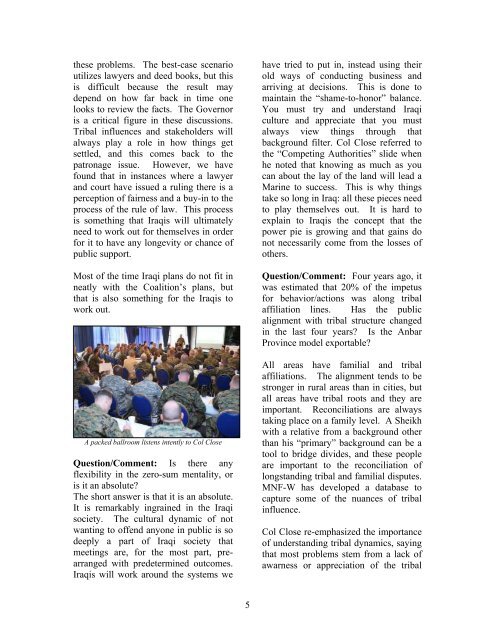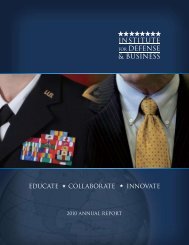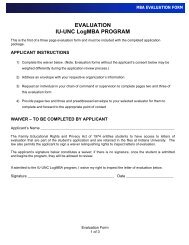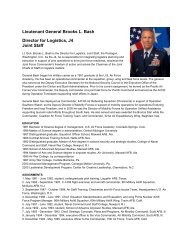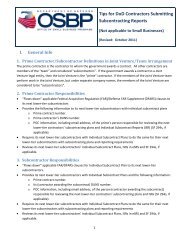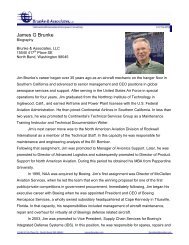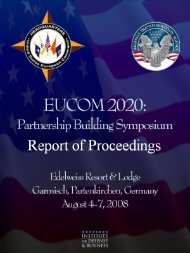MNF-W (Designate) - Institute for Defense & Business
MNF-W (Designate) - Institute for Defense & Business
MNF-W (Designate) - Institute for Defense & Business
Create successful ePaper yourself
Turn your PDF publications into a flip-book with our unique Google optimized e-Paper software.
these problems. The best-case scenario<br />
utilizes lawyers and deed books, but this<br />
is difficult because the result may<br />
depend on how far back in time one<br />
looks to review the facts. The Governor<br />
is a critical figure in these discussions.<br />
Tribal influences and stakeholders will<br />
always play a role in how things get<br />
settled, and this comes back to the<br />
patronage issue. However, we have<br />
found that in instances where a lawyer<br />
and court have issued a ruling there is a<br />
perception of fairness and a buy-in to the<br />
process of the rule of law. This process<br />
is something that Iraqis will ultimately<br />
need to work out <strong>for</strong> themselves in order<br />
<strong>for</strong> it to have any longevity or chance of<br />
public support.<br />
Most of the time Iraqi plans do not fit in<br />
neatly with the Coalition’s plans, but<br />
that is also something <strong>for</strong> the Iraqis to<br />
work out.<br />
A packed ballroom listens intently to Col Close<br />
Question/Comment: Is there any<br />
flexibility in the zero-sum mentality, or<br />
is it an absolute?<br />
The short answer is that it is an absolute.<br />
It is remarkably ingrained in the Iraqi<br />
society. The cultural dynamic of not<br />
wanting to offend anyone in public is so<br />
deeply a part of Iraqi society that<br />
meetings are, <strong>for</strong> the most part, prearranged<br />
with predetermined outcomes.<br />
Iraqis will work around the systems we<br />
5<br />
have tried to put in, instead using their<br />
old ways of conducting business and<br />
arriving at decisions. This is done to<br />
maintain the “shame-to-honor” balance.<br />
You must try and understand Iraqi<br />
culture and appreciate that you must<br />
always view things through that<br />
background filter. Col Close referred to<br />
the “Competing Authorities” slide when<br />
he noted that knowing as much as you<br />
can about the lay of the land will lead a<br />
Marine to success. This is why things<br />
take so long in Iraq: all these pieces need<br />
to play themselves out. It is hard to<br />
explain to Iraqis the concept that the<br />
power pie is growing and that gains do<br />
not necessarily come from the losses of<br />
others.<br />
Question/Comment: Four years ago, it<br />
was estimated that 20% of the impetus<br />
<strong>for</strong> behavior/actions was along tribal<br />
affiliation lines. Has the public<br />
alignment with tribal structure changed<br />
in the last four years? Is the Anbar<br />
Province model exportable?<br />
All areas have familial and tribal<br />
affiliations. The alignment tends to be<br />
stronger in rural areas than in cities, but<br />
all areas have tribal roots and they are<br />
important. Reconciliations are always<br />
taking place on a family level. A Sheikh<br />
with a relative from a background other<br />
than his “primary” background can be a<br />
tool to bridge divides, and these people<br />
are important to the reconciliation of<br />
longstanding tribal and familial disputes.<br />
<strong>MNF</strong>-W has developed a database to<br />
capture some of the nuances of tribal<br />
influence.<br />
Col Close re-emphasized the importance<br />
of understanding tribal dynamics, saying<br />
that most problems stem from a lack of<br />
awarness or appreciation of the tribal


